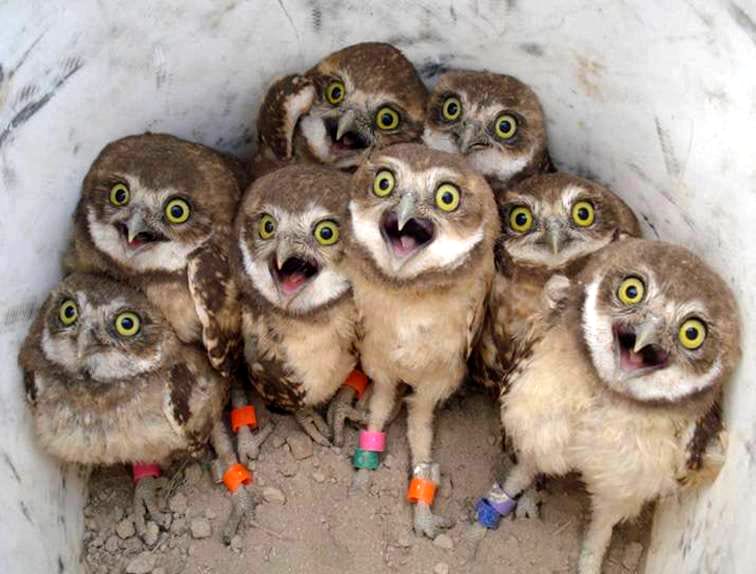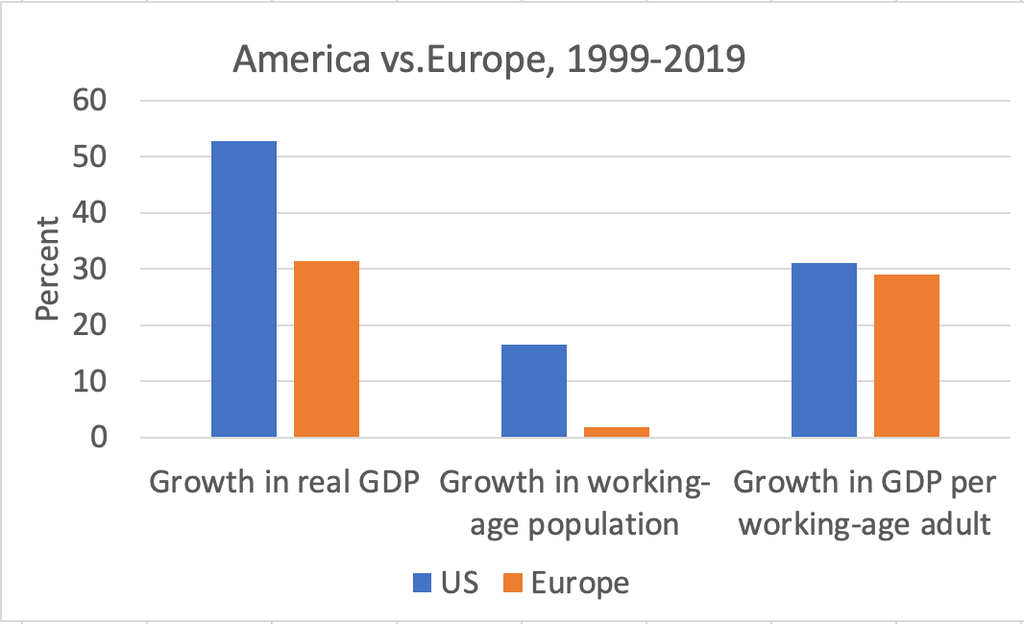Demographics Revisited
Going beyond increased immigration and public daycare to solve the coming demographic collapse. Dr. Josh Stout discusses how new data from the IMF show how classist demographic models are no longer true. Rich and poor alike are having fewer babies.

How to Save The World Without Resorting to Fascism
Please scroll down for links below the transcript. This is lightly edited AI generated transcript and there may be errors.
Eric 0:09
Friday, February 2nd. This is season two, Episode five of Mind Body Evolution.
Dr. Josh Stout 0:15
Hi, Josh.
Eric 0:17
What are we talking about today?
Dr. Josh Stout 0:19
I have been thinking about some of my prior podcasts and I've been getting worried in the way I sometimes do about sort of the future and the way the way civilization could end. And I'm particularly worried about a sort of A Handmaid's Tale situation happening because of the coming demographic collapse that we're facing. So we talked earlier about our versus Kay and how education of women was going to save the planet. And I completely agree with that because in the seventies and eighties we were looking at a neo Malthusian collapse of everything really almost end of life on earth, or at least.
Eric 1:00
Just overpopulation.
Dr. Josh Stout 1:01
Overpopulation, everything. Everyone would be sick all the time and we'd be eating each other, you know? You know, it was we were we were heading to really bad times. Yeah. And by lowering the overall global population, we have saved the world. However, our entire economic system is not built to work without growth. So we've been making everything to work with.
Eric 1:26
Again, capitalism. Yes.
Dr. Josh Stout 1:28
Really fantastic growth rate from from from the sixties till till today. We've doubled our population. If we doubled it again, we would be in big trouble. But this has spurred everything and with often the sort of the foundation of of wealth being the real estate business. And when real estate collapses, the whole economic system collapses. And if you don't have people to get into the houses, real estate can't keep going the way it does. Mm hmm. And so if everything is.
Eric 1:57
I mean, this is this is exactly what we're seeing happen in China right now.
Dr. Josh Stout 2:00
And we're seeing many of these things connected. And so once your demographics starts to have problems, your economic system starts to have problems. So this first happened in Japan. There was a collapse of their economics and they they were no longer, you know, a direct economic competitor with the United States in the in the eighties because their economy collapsed. And it seems like they've never been able to recover. They've just been stagnating. But if you look at their productivity for per person, they're there are equal maybe even a little bit better in total productivity. It's just that they have fewer people who are now working age. And so if you if you take the fewer people they have and look at their total productivity, they're doing great what they to keep at zero. They've been doing a fantastic job keeping their economy going. But because they haven't allowed immigration, they haven't been able to grow their economy in any way, because they haven't because they have a falling demographics. And this is going to be continuing and it's very, very difficult to stop. And so I really wanted to come back into this topic because I was thinking about it from the point of view of I'm a professor. I talk to students about this. And for me and the students, it's all about trying to get your kids into college. And the limiting factor is, you know, how many, how many university slots there are, and people are having fewer children so that they can put more resources into the children and get them to a good place in college. And that sort of that was my model.
Eric 3:29
That that's been the story.
Dr. Josh Stout 3:30
And realizing that this was essentially a classist model in many ways. And I wanted to address this because it's not really true. And this was this was a model that had been understood by a lot of people. I wasn't the only one. I was just the only one thinking about it in our versus KS terms in ecological terms. The I was just reading an article by the World Bank and the IMF and they were calling it quantity versus quality versus K with a really big class just bent to it so that having fewer children meant better, having better children and they would then be more successful because you put more resources into them. So it was it was my it was my argument that ecologically was was essentially unbiased, but had had a tendency toward the classes biased, and they just went for it. They just went whole, whole hog for this kind of thing. And it turns out that the data don't support this, that what is actually happening, except for sub-Saharan Africa, which we'll talk about why the data.
Eric 4:33
Don't support.
Dr. Josh Stout 4:34
Don't support a classist explanation of what's happening with demographics.
Eric 4:38
In other words.
Dr. Josh Stout 4:39
It's not just educate even of women going to college and competing for these college things, causing people to have fewer babies. Okay. There are other things that are happening. It's across the board. What's happened as women and men's roles have converged. Women are in the workforce. They're not just going to college. And it's and it's doesn't matter how rich you are, women are going to be needing to work. And when they're working, they're going to put off reproducing. And so this is happening across the developing and developed world, across Asia, South America, all across Europe, poorer countries. Same thing is richer countries.
Eric 5:21
Economic status doesn't matter anymore.
Dr. Josh Stout 5:23
No longer seems to matter.
Eric 5:24
In this case, reproductive rates.
Dr. Josh Stout 5:27
We've reached some sort of turning point where the way our culture works inhibits reproduction. It means that both parents have to be working and so you have fewer children.
Eric 5:40
Our culture is in direct opposition to our evolutionary needs.
Dr. Josh Stout 5:45
Essentially. And my arguments about also increasing resources for the children are still true. But it's not just the limited resources of university, it's across the board. Resources for your children are expensive and you need to work hard to produce resources for your children. And the more children you have, the more divided those resources will be. So my Art versus Kate argument holds up. I just had to sort of take some blinders off that were due to the way I teach it. And that had been understood and seemed to be true. So in the 1980s, the poorer country was the higher its reproductive rate was and the richer a country was, the lower its reproductive rate.
Eric 6:25
And this was a provable thing.
Dr. Josh Stout 6:28
Across the board and across time. Yeah. However, we've now reached a point where that is no longer true. So many poorer countries have a lower reproductive rate.
Eric 6:41
Flattening of that.
Dr. Josh Stout 6:42
Than many of the richer countries. So the United States is one of the richest countries out there. We actually have a higher reproductive rate than most of the rest of the developed world. In 1980, we had a lower reproductive rate.
Eric 6:52
So we're going in the opposite direction.
Dr. Josh Stout 6:54
Our reproductive rate has more or less stayed the same. Everyone else has changed. So probably our ability actually to have a more egalitarian society has helped this along a little bit. However, we're not moving in that direction most probably. The reason for this difference in the United States is our high immigration rate, that we have a large number of immigrants coming to this country and having children. And that is what has really kept us at replacement.
Eric 7:27
Fascinating. Especially right now.
Dr. Josh Stout 7:29
No, absolutely. So so the number one way to solve these problems is increase immigration rates because our economy will suffer. And this has been shown. So it wasn't just Japan, whose economy suffered as its demographics slowed down. Europe has been doing this as well. Many, many people on the right like to point out that Europe's economy is not running as quickly as the United States as we were. We don't have the same GDP per person. Europe's is slightly lower. And so they're saying, well, look, this is because of all their social programs. It's because of socialized medicine that they they don't work as hard to get their their health care. One, I would say I really like I would like to live longer and Europeans live longer than Americans. So that's one way to make life better is to be living.
Another thing is that if you actually look at productivity per person, just like Japan, their productivity is just as high. The thing that's lowering their productivity is simply lack of people. And so they also need more immigration.
Eric 8:31
So you're saying we need people to keep the economy going.
Dr. Josh Stout 8:34
The entire way that capitalism is formed is based on growth and based on number of workers producing goods and services and producing a GDP. And if you want your GDP to go up, one way to do that is to increase the number of people. You can also increase productivity. But we've reached kind of a maximum at what we can do in productivity. We've been pushing it and pushing it and pushing it. It's part of what makes us all so tense all the time because we're always pushed, pushed to produce more and produce more and produce more. You know.
Eric 9:04
Just like we could have a whole episode on just.
Dr. Josh Stout 9:07
That. You know, Joel was describing it as, you know, a really clever way. If you're a manager and you want to increase productivity by 10% and you've got ten people fire one of them, you've suddenly increased productivity by 10%. And so we've been doing this all along. We've been seeing, you know, how...
Eric 9:22
It just sounds so backwards.
Dr. Josh Stout 9:24
No. And so we this is how we've been doing everything. It's how capitalism is designed. It's it's what George was calling the maximum capacity so that you don't want to have extra seats on your airplane. You want to slightly overbook it all the time. So the prices go up and it's really crowded when you get on it. So you actually create an unpleasant experience for your customer as a way of maximizing prices and productivity. And so we've been doing this all the time, increasing our stress, pushing it to the edge. But all of it is based on a increasing population if you want to increase growth.
Capitalism will not change as population starts going down. There still won't be any seats on the airplane. We will still feel stressed. This stress will lead to lower population rates. The stress that women feel when they don't have anyone to take care of their kids and they need to leave for work will not go away. If we don't do something about it. Now, one of the sort of disingenuous arguments that is often given is that the the northern European countries, Scandinavia, Norway, are very generous with their family leave and daycare, and yet they still have negative population growth. And they say, see, even even with generous daycare, you still get negative population growth.
Eric 10:52
It makes me want to use profanity.
Dr. Josh Stout 10:54
I know. Well, see, here's the thing is these people are trying to sell themselves as moderates because they're at least looking at data. However, when you bend the data to fit your ideas and your ideology, you are not a moderate even if you say you are. And so in my opinion, they are not moderates, because what the data actually show is that countries with generous family leave and daycare provisions have higher reproductive rates than comparable countries without them. So if you actually compare apples to apples, family leave really does help. But it's also clearly still not enough. They still have a negative reproductive rate. And so I think we need to start going to another level. First thing we can do, we can sort of do the low hanging fruit while we still globally have an increase in population. We can solve the problems of, you know, what's happening capitalism tomorrow by having immigrants into our countries. So certainly this would solve a lot of problems in Korea and Japan. Culturally, they might have issues with that. It would solve the problems in Europe. Culturally, they have issues with it. It would solve our problems in the United States. Culturally, we should not have issues with this, but we somehow still do. Many of us remember being taught how great it was to be in an immigrant country, and yet we are completely anti-immigrant.
Eric 12:17
I think there are a couple of schoolhouse rocks on that.
Dr. Josh Stout 12:19
A whole bunch of stuff. It was it was understood that this is what made America great and somehow we've turned away from this. So that is that's the obvious short term solution to a very growing short term problem of a demographic collapse. But the demographic collapse will still go on. Eventually, all those immigrants become Americans and their rate of reproduction goes down. And so eventually we will be in a world with decreasing population and we need to deal with it.
Capitalism will not change in response. Capitalism is still the same in Japan.
Eric 12:56
Cannot change, cannot. So.
Dr. Josh Stout 12:58
So there will still be the same stress to go to work. They will still be the same stress to compete for limited resources. The housing numbers will not get better. There won't be more seats on the airplane.
Eric 13:12
Do you have a suggestion?
Dr. Josh Stout 13:13
Yeah. Well, I'm trying to think about ways to address this without leaving our entire system behind. I actually am pro capitalism. If it can be done in a way that doesn't destroy people. Norway, Scandinavia have a good hint at a way to start. Family leave takes a lot of the stress off of women. Takes a lot of the stress off of people who instead of having to go to work that can take care of their kids. Then you have daycare that can leave the kids in daycare. Now they can go to work again. It's a way of managing a two parent working family in a capitalist society that is caring for people, actually having families. And there's real evidence.
Eric 13:51
We don't just need the child care, we need the elder care. We need all of it.
Dr. Josh Stout 13:56
I'm just talking about ways to reproduce faster. Elder care will not help us do that. I would like that. That's a nice thing to think about. But if we're just talking about demographics, child care actually needs to be the main thing. Because if you have more children working, there's more money to take care of the elders and there's going to be a lot of us elders really soon with very few children. We need more children. Before we get the children, we should get the immigrants after immigrants. Then we need to start thinking about daycare and child care. But these are also incremental things that will just buy us more time. We are really heading towards a global demographic collapse. There might be half the number of people in, say, two generations from now.
Eric 14:38
It's it doesn't sound good.
Dr. Josh Stout 14:39
It's not good. You know, Korea is now at 0.8 reproductive rate, right? You need to for a replacement that's less than half in the next generation.
Eric 14:49
I, I, - having lived in Korea, I can't imagine them ever accepting immigrants into the country.
Dr. Josh Stout 14:55
So they don't have a short term solution. They can start thinking about the changing things at the margins, increasing daycare. I think there are moving in that direction. It will help a little, but it still won't get them reproducing fast enough. So the only way you can do this is I like to think about capitalism, sort of like tag. You don't really need rules for tag. Everyone knows how tag works, but if you don't play tag with any rules, it turns into tackle tag on asphalt really quickly and everyone's breaking bones and losing skin. So you do need rules for Tag to tell each other how not to get hurt, how to play this game. But everyone enjoys it because you understand how the winners and losers work and it all feels pretty fair to you. Even if some people run faster than others, there's still ways to get onto base or you can you can figure out ways to make the game work for everyone, even though it's a very intrinsically understandable competition. I think capitalism, the same kind of thing. We're all competing for goods and services. But we've got to figure out a way that we're not killing each other to do it. And we can change the rules. We can add bases.
Eric 16:01
Find ways to play without pushing each other's faces into the asphalt.
Dr. Josh Stout 16:04
Exactly. Exactly. And I don't think we can live in a world that tries to eliminate competition or to eliminate bonuses for people who succeed. Right. That would be a world where you wouldn't have, you know, people if you couldn't tag someone out who would bother running right? No one would run. You just sit down. And so if you want people to do stuff, you need to have a rewards based system that appeals to our sort of, you know, inner ape that just wants that reward. And so this I like the way capitalism works like that. It intuitively encourages us to get out and do our jobs. But the pain for what happens when things don't succeed has gotten to the point where we're no longer reproducing. And this is problems biologically. So if we want to keep capitalism working, the dark solution would be The Handmaid's Tale. If you see that women going to work and getting education prevents them from reproducing and you think that your society will collapse without an increase in reproduction, the obvious easy solution is stop women going to work and stop them going to school.
Eric 17:21
And yeah, but the people who think that clearly have never lived with a woman, that's just I don't.
Dr. Josh Stout 17:27
Think they necessarily care about it. There are people in this country who are avowedly trying to push a patriarchy, and this would be the outcome of that. This is how you would do it. You would say, Look, to make capitalism work, we can't allow women to be out of the house.
Eric 17:43
It's just it's so science fiction. It can't it just I see people I see people actively trying to make this happen right now on television, in politics. But it also seems so unreal.
Dr. Josh Stout 17:55
All right. Now let me tell you why you shouldn't do that. Let me tell you, for enlightened self-interest reasons, obviously, it would be bad to confine women in their houses for human rights reasons. But let's leave human rights behind. It's also bad for an economy to take half of your workers out of the job force. It is bad for society to have half of your population not educated. We have had tremendous growth since we've had women as a society.
Eric 18:25
To have any of your society subjugated, it's exactly so.
Dr. Josh Stout 18:30
Fascism is always bad when you create an order that you then abuse, even if you have a logical reason to make it work and this would work, you could increase your reproductive rate this way, but you would have halved your productivity and you would end up with, you know, mothers without the education that is now freely being given to their children. More educated mothers end up with more educated children. We know this. We've we've we've shown it across the board. And so you would break that cycle as well. So you would be hurting future generations. So even if you were a purely heartless pragmatist and don't care about human rights at all, you should not be looking for a world where we cut half of our productivity.
Eric 19:15
But it seems to me that the people who who are advocating these things and trying to work for these things and make these things happen, there's no real actual policy that they're trying to promote. It's not they're not really trying to deal with the population issue. They're not trying to deal with any issue at all. It's about power, okay? It's about control.
Dr. Josh Stout 19:36
Let's not get into the illogic of the way the right wing works. It is it is right now reality free. And so you can't you can't really argue with them in a in a in a reality based format. And I think that's sort of what you're getting at on I'm just trying to say that let's imagine there are people who engage with reality. I'm trying to talk to those people and that there is.
Eric 20:08
A forgive me, I had to have that outburst.
Dr. Josh Stout 20:10
I understand that, that there is a logic called cold hearted, somewhat evil reason to not lock women away in their houses, to say, I want it for the economy. Women need to be part of an economic system that is a modern capitalism. We would be losing, you know, more than half of our productivity, but we would be losing the components of women, being productive and being educated and also women's function of increasing the education of a of a family and improving the chances of a mother of a child becoming educated. So all of these things are would lead to a disaster for society.
Eric 20:48
People have already proven that they really don't care about that but don’t.
Dr. Josh Stout 20:50
Don’t care about disaster. Yes, anyway, I'm just trying to give the reasons for it. If you say wanted to keep society and didn't mind helping people and wanted to make life better for people and increase reproductive rates, the way to do it would be to give capitalist rewards for reproduction. For example, not just daycare and not just family leave, but actual free education for parents. If you have children, free education, a boost up in the job world in some way. So right now, if you're male or female, mother or father, it doesn't matter your gender. The more engaged you are with your family, the less you are engaged with your job for a period of time. This has a long term cost to you and your family. You lose momentum in your in your career and there's no way around it. And the best you can do is sacrifice a little family and sacrifice a little career and kind of balance it. And women have been doing this for a long time. Men are trying to figure out how to do this, but it's a cost for everyone. It means that people in families are not as rich as people without families. And we all, as rational actors see this and are less likely to have more children. So this is something where capitalism is going to keep on causing us to have fewer children. Now, if I saw it advantage if everyone saw an advantage early in their lives at the age of 18, you get a free college education if you have a child and that child has daycare all the time. And that's not just for the mother but also for the father. You're going to see a huge population spike If, say, you didn't want it at 18, you wanted it at, say, 30. It throws a good age to have kids. You're a little bit more mature. You might be able to have more resources, but this is a time when a lot of parents end up having a big gap in their career because they have kids in their thirties and suddenly all the people who were just starting their career in their late twenties have a big gap. The ones who don't have children keep moving forward and the ones who do get left behind. And so that's what we're all feeling right now. How do we stop that? There has to be some way to have, you know, actual advantage in the job world because you have children. There has to be something where we're no longer privileging the people who didn't sacrifice family in favor of career, both males and females. You know, there's still a lot of societal aspects to this. So the the the word for a working mother in Germany is bad mother. And that's a real problem. So we need to start thinking about is a working father a bad father, You know, are we What we need to think about is how do we make good mothers and fathers who can work? And there needs to be a career advantage to having children if you want capitalism to reward children so both educational and career aspects have to stop inhibiting children, right? It's very difficult to have children and go to college. So people want to go to college, don't have children. It's very difficult to have a job and have children. So people who have jobs don't have children and we end up in a demographic collapse. I don't want to live in a world where we that insist, okay, women can no longer have jobs or education so that they will have children. This will be terrible, not just for women, but for society as a whole. For next generations. We will be terrible people living in a terrible world if this happens. And so the only other opportunities we have to keep a capitalist functional system that rewards people for effort is including families as that effort and a way of rewarding them. It could be straight out cash grants that doesn't that doesn't tend to be enjoyed by a lot of them, particularly on the right, just giving money to people for having.
Eric 25:10
No, but it's certainly changed the lives of many people during the pandemic. Absolutely. A real thing. And there was a measurable difference.
Dr. Josh Stout 25:17
Yeah. And if we'd kept that up, I bet we would have seen a measurable increase in the number of children out there.
Eric 25:21
Yes. Yeah, very possibly. Yeah. It makes if it makes it substantially easier to have the kids over the long term.
Dr. Josh Stout 25:28
So basically, just from a from a cold blooded system, you need to increase the rewards for having children and decrease the penalties for having children. And this is not a class based thing. There has to be across the board. It's not just about getting into college. It's, you know, sort of I was thinking about it as a professor. This is this is something that is across the country and across income level. The only places where this is not happening, sub-Saharan Africa, is simply because they're still largely in traditional societies that are subsistence farming. If you're a subsistence farmer, you want to have lots of babies. And so for a long time there was this economic divide between developed world living in cities, having lower reproductive rates and subsistence farmers in the countryside, basically everywhere who are having more children. As soon as that changes, even if you're a farmer today, an American farmer is not going to have as many babies because his kids also have to go to college. His kids, males and females all also have to work in a way that isn't just working on the farm the way it had always traditionally been done. These are people who have to be able to program their tractors to run along their laser, GPS guided. I fields with their with their, you know, very calculated fertilizer schedules for, you know, particular watering schedules. Everything is very, very precise and takes a lot of work, takes education, takes resources. And so, you know, if you're an American farmer, you're not likely to have more children necessarily than someone in the city is having children today. There is no longer any difference. You're also not necessarily tremendously poorer. The people who are poor, who are still having babies are generally I immigrants, sometimes illegal immigrants who are coming in to do the field work in the in the farms, the absolute bottom of the agricultural level still having fairly high reproductive rates. It's probably what's keeping America's I United States is reproductive rate above replacement at the moment is immigration and mostly in the agrarian sector. So these are people who are coming from developing world farming type communities and moving into the same thing. So they they keep their reproductive rate up for a while, but the next generation will continue.
Eric 27:46
Then their kids are Americans.
Dr. Josh Stout 27:49
Exactly. And are going to have low reproductive rates. So again, first solution to the problem, more immigration. Second solution to the problem, more family leave and better daycare options. But then we need to start thinking about actually increasing the benefits and decreasing the costs to actually having children.
Eric 28:09
I'd love it if there would be a way to make that happen.
Dr. Josh Stout 28:13
Me too. I just see I see the solutions as clear and as better than the evil solutions, both both for the individual people and for society as a whole. You'll be living in a better.
Eric 28:25
Making, making. The problem here is that making the work world a place that has benefits for parents is a is this is is a almost impossible task now because it seems like it's anti-capitalist. It seems like there's no way to benefit a company when people are coming and going and have to disappear and not be there or how do we work past what? I mean, companies will fight this. Are you going to legislate this or you're going to tell private companies how they have to run out?
Dr. Josh Stout 28:57
Yeah, it would be difficult to figure out, but it would have to be something like that. So seniority would have to continue.
Eric 29:03
This is something that's going to take a cultural change.
Dr. Josh Stout 29:06
It would have to be a cultural change. The beginning is immigration and daycare. These are things where we can see the clearly not a huge cultural change and something that we can do to buy ourselves time as we figure out how to get on.
Eric 29:19
There's no doubt that we need we need child care in this country.
Dr. Josh Stout 29:22
But the other options are eternal stagnation and economic collapse while everything gets tighter and tighter. And that's what we're heading for. So if we don't change anything. Oui, oui, oui. We managed to keep a relatively free society so we don't imprison women in their houses. We keep everything the way it is. We just keep moving forward as our demographics just slowly wind down, things will not start feeling better. We can live in a population that's half the size it is today. It might be only 50, 70 years in the future. Might be that it could happen really, really quickly and still feel the same pressure and still be lowering population because we still have the feeling of there's no more seats on the airplane.
Eric 30:10
70 years from now, there's half the population and still not enough seats on the airplane.
Dr. Josh Stout 30:14
Right. Still a housing issue. Yeah. This this could easily, easily happen. This is where we're heading.
Eric 30:20
We could stop this this process.
Dr. Josh Stout 30:24
We can slow it down, which would be a first thing we can. We can we can start addressing it and then we can start thinking about how to solve it. It's a lot like global warming. We we we see the disaster coming. We probably won't do anything about it, but we have some really obvious ways to at least slow it down. And hopefully there will be enough rational people that will realize that we simply need more people to come to America to do our jobs and that we need ways for women to do their jobs and still have babies. And, you know, they can they can at least have daycare. This is this is a short term but will help.
Eric 31:06
All right. Well, again, a hopeful message.
Dr. Josh Stout 31:08
I'm hopeful because I really try and think of hopeful messages, even though, you know, we can see some disasters that could happen. So there is there is there's Handmaid's Tale, there is status quo.
Eric 31:18
You're bringing you're bringing the terror and the way out. Yeah.
Dr. Josh Stout 31:22
And then there is there's there's what we do if we actually think rationally about this.
Eric 31:26
All right. Well, thank you very much, Josh.
Dr. Josh Stout 31:28
Thank you so much.
Eric 31:29
Next week. Yeah.



Theme Music
Theme music by
sirobosi frawstakwa








